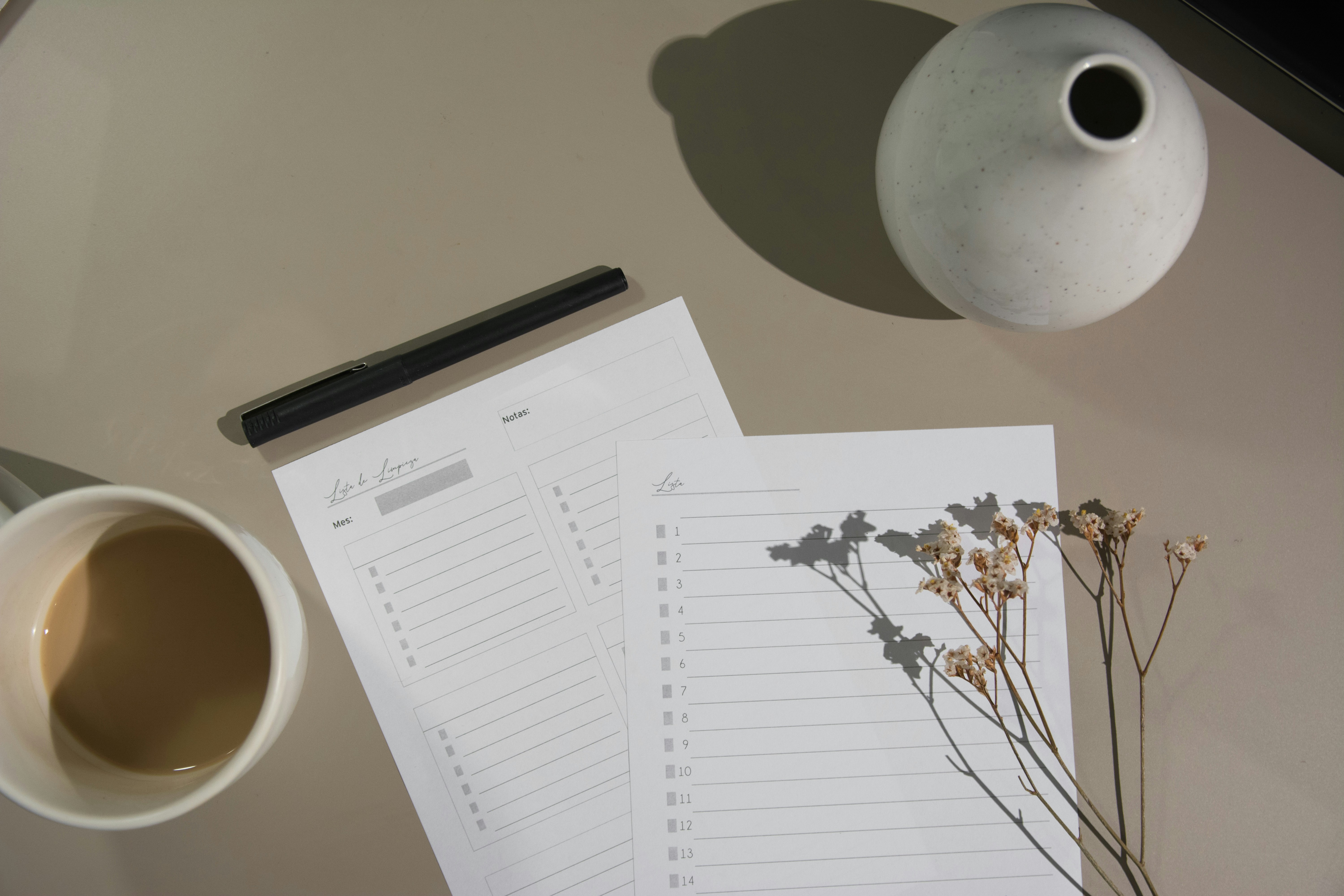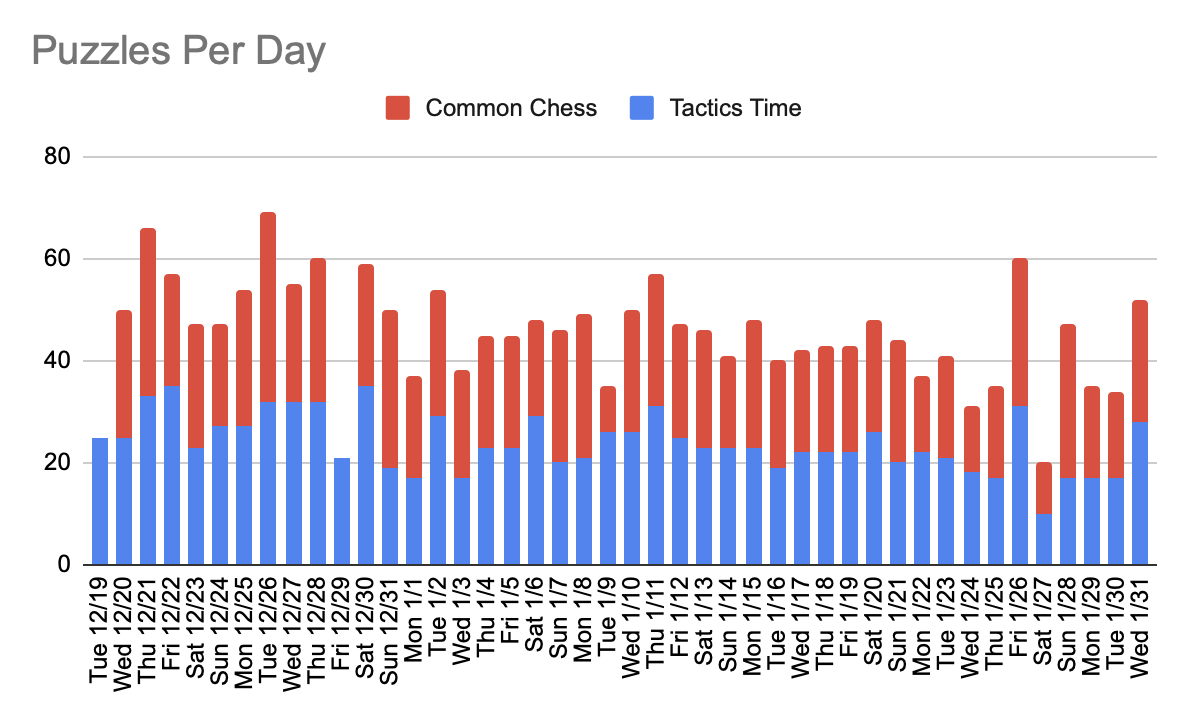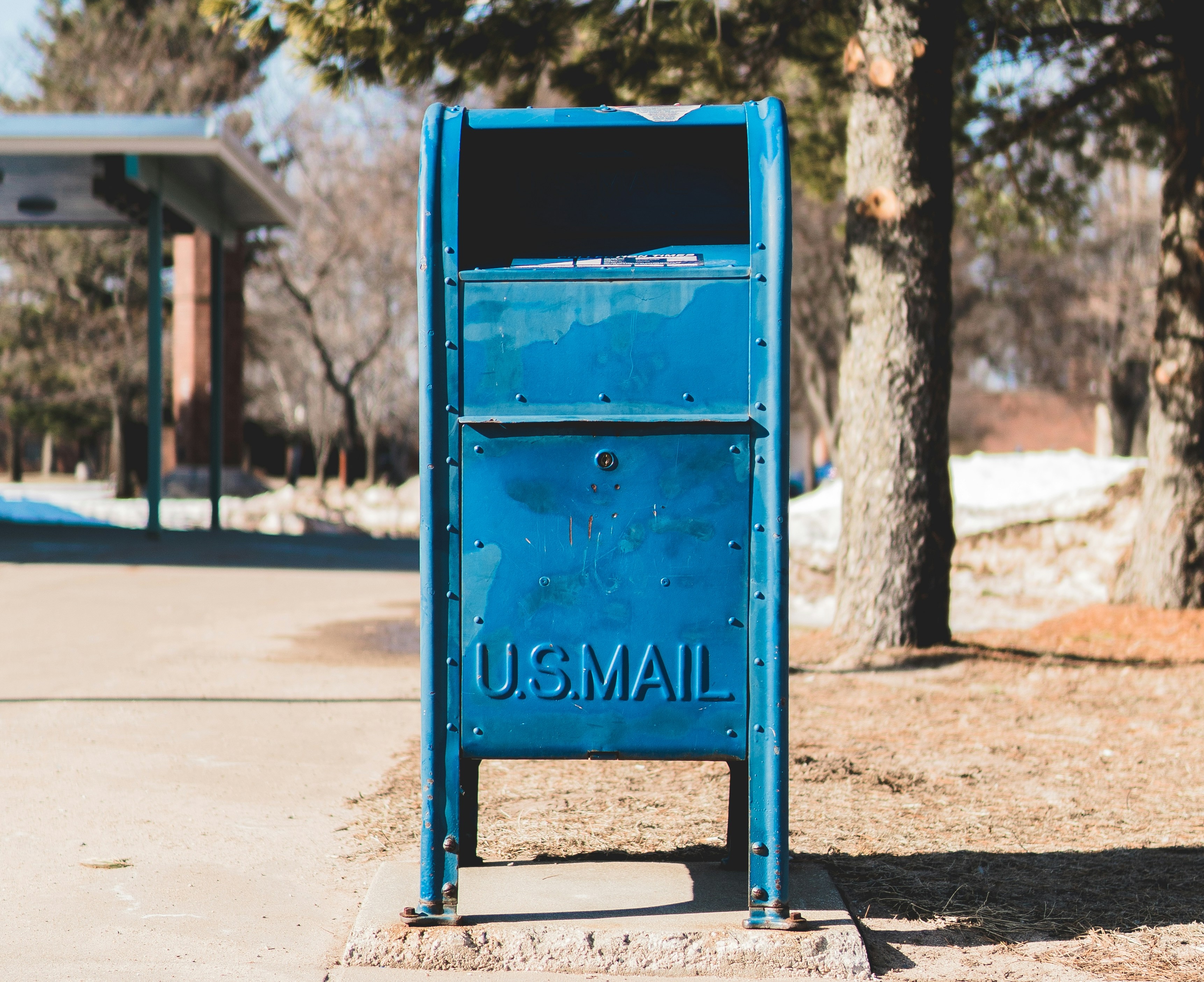Next Level Planning

Photo by Paico Oficial on Unsplash
I got back into the habit of planning out my week of study (until I didn’t, see below). I really like Noël Studer’s Next Level Chess and I did the Next Level Training. At the end of December he sent out a series of emails about kickstarting your year. You can find the first one here. I knew I needed to do something, so I jumped in.
Each Sunday I figure out what I am going to study that week. I set specific times and topics. For example, “on Tuesday at 7:30 I will do page 15 of Chess Steps”.
Each week I spend 2 days on tactics, which is Chess Steps. That is in addition to the puzzles I do each day (see below). Then I spend 2 days on playing longer rapid online games and analyzing them. And the last 2 days are spent on a new topic that interests me. Some of these topics have been:
Make progress in Silman’s Endgame Course on Chessable (I already read the book up to my level, but now I’m going back and doing it in Chessable too)
Start developing a thinking process during a chess game (what is my opponent’s move doing, checks/captures/threats, etc)
Trying to play some games of solitaire (guess the move) chess
It Sounded Like a Good Idea
This all sounds great, but…
There wasn’t a week where I was able to stick to my schedule. Family commitments changed, something comes up at work, or my plans were otherwise interrupted.
The good news is that I mostly did everything I planned on doing. I still struggle a bit with lots of hard deliberate practice. But, this month was mostly about starting to get into the routine. As Noël says in his training and blog, start small and if you prove to yourself you can do that, then increase it the next week.
I also spent some time traveling this month, so I did not count on any study time. I just brought along Simple Chess and a pocket chess board and read that whenever I had the chance.
Tactics
One major thing I did was get back into doing tactics puzzles every day. Way back in December 2021, I started doing 20 minutes of puzzles a day following the great blog post by Alex Crompton. That lasted a few months, but I did not fully follow-through. Though that was the point I started going through the whole wonderful Learn Chess The Right Way series by Susan Polgar.
Maybe it was a bit too hard for me at the time. Fast forward two years and I stumbled on the article again and decided to give it another shot.
I have 2 Chessable courses I am using now:
Tactics Time 1 - Random tactics
Common Chess Patterns - Tactics by theme
I spend about 10 minutes on each one. That said, I don’t actually time myself any more. I first do all the open reviews. Then if I feel like I did not spend enough time, I’ll add another 5-10 puzzles.
The original blog post says that I should be solving these all in 8 seconds. I understand the goal is not to calculate, but to instantly recognize patterns, so this aggressive speed is recommended. However, it was just too fast for me. I change the settings to 60 seconds. At the fast speed, I found I was really just guessing on moves. By making it a bit slower I am trying to force myself to think through the sequence at least a little bit.
I have been trying to measure the number of puzzles I am doing each day. This is a bit hard because Chessable tells you how many moves you have to review, but not how many puzzles those moves come from. I have an estimate however.

Some statistics:
By my estimates, I’ve done about 2000 puzzles since I started in December, over 1300 in January. This is 350 unique puzzles, and then the spaced repetition to make sure I know them.
I’ve spent about 15 hours (20 minutes * 45 days) on tactics, but more important is the consistency of doing them every day
I am currently averaging around 45 puzzles per day
Blitz
At the end of 2023 I was playing a lot of Blitz, at least for me. In November I played 140 blitz games (5 per day). Not a huge deal, but I was doing that instead of longer games or studying that I know is better for my growth.
In January I played 63 blitz games (2 per day), which is a big improvement. I also tried to do better about tilt and not keep playing after I lose.
Correspondence Tournament

Photo by Alex Perz on Unsplash
I also started the final round of the USCF correspondence tournament that I started back in June 2021. See a recap of the first round. The time format is 30 days for every 10 moves.
I am still a little in disbelief that I am still in this. I think I was an alternate for this round, having not qualified directly after the semifinal round.
A big part of this type of tournament is just organization and the ability to remember themes and plans across many games and across many days. I take lots of notes so I can try to keep track of my ideas. You are not allowed to use engines, but you can use digital databases to store the games.
I feel like I am doing alright so far in most of the games. There is one game that I am nervous about and I’m not really sure where I went wrong. It was just a slow grind that I made some poor positional decisions. Unlike the blitz and rapid games I usually play, these opponents never make all-out blunders. And a big part of my process is just making sure I don’t either!
This round we switched to using ICCF which makes some of the record-keeping much smoother. In the last round I was using Chessbase because it has a correspondence feature. However, it was not great and using ICCF is much easier.
What’s Next
In February I will be traveling less so I want to focus on the planning and routine that I started in January.
I also want to focus on playing longer games and doing analysis. I did this a bit in January, but I need to do better.